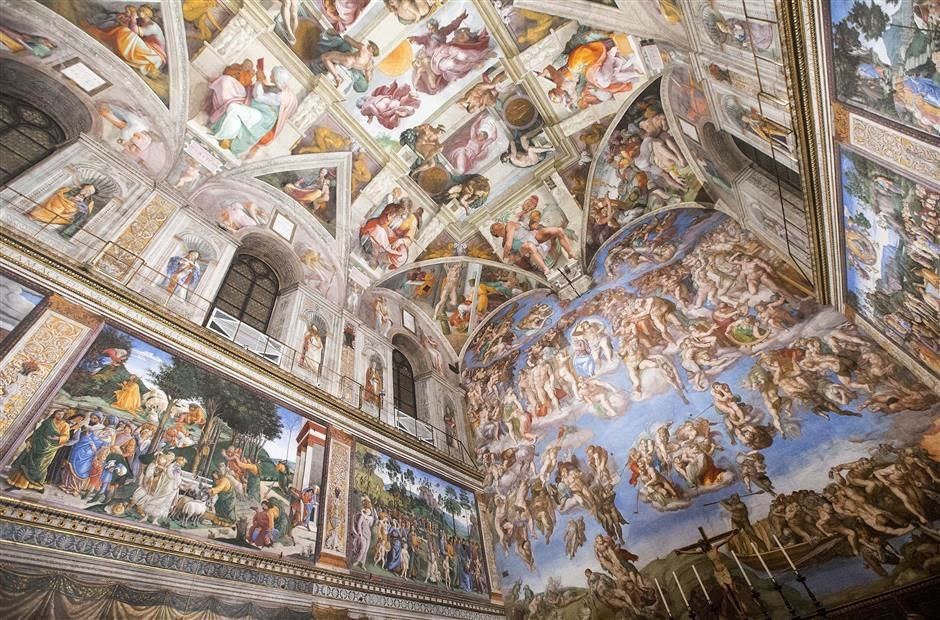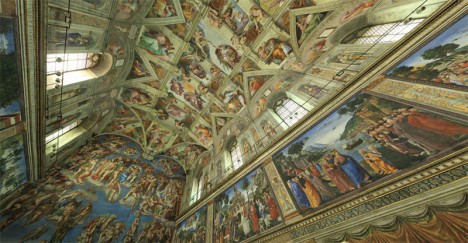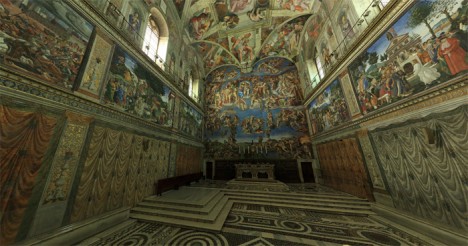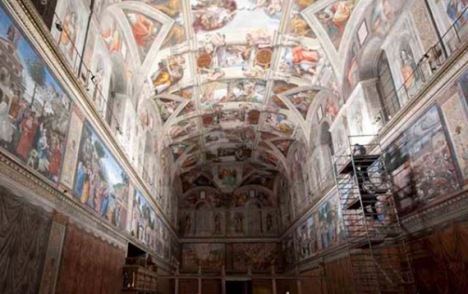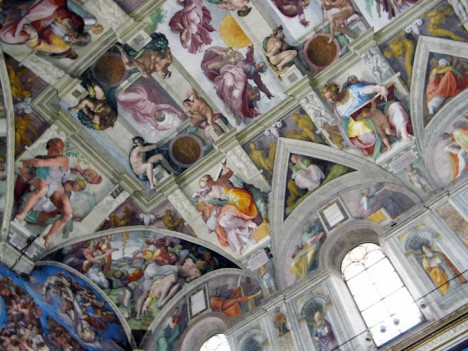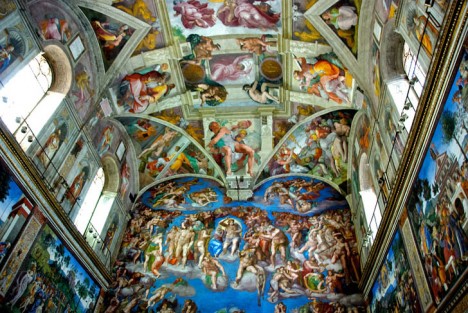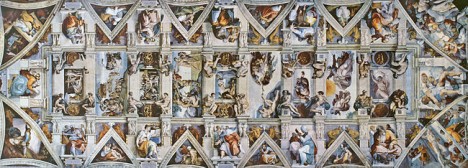For 500 years, visitors were able to see Michelangelo’s famous 6,000-square-foot painting bathed in natural light, but for the last 3 decades they have gotten a dismal view, the room shuttered and lit by weak halogens – but all of that is about to change. For the first time since outside light was blocked by the Vatican (or, in some regards, since the painting was first created) its 5,000,000 annual viewers will have a clearer-than-day look at this amazing ceiling-spanning classic.
Thanks to Osram, a German light manufacturer, the new lighting strategy being deployed will not just rival but actually exceed the capabilities of sunlight, casting color as well as illumination, all without damaging this seminal work.
The design had to take into account the complex three-dimensional nature of the space while also using out-of-the-way crevices and architectural details as places to tuck in the lights.
Carefully attuned the actual color spectrum showcased in the work, the array of thousands of LEDs will greatly enhance the visitor experience beyond previous rehabilitation attempts. Meanwhile, since LEDs do not emit energy in the UV band, the frescos will be protected from decay associated with other kinds of light exposure. Also, they will last far longer than conventional lights, making the solution more durable and robust.
